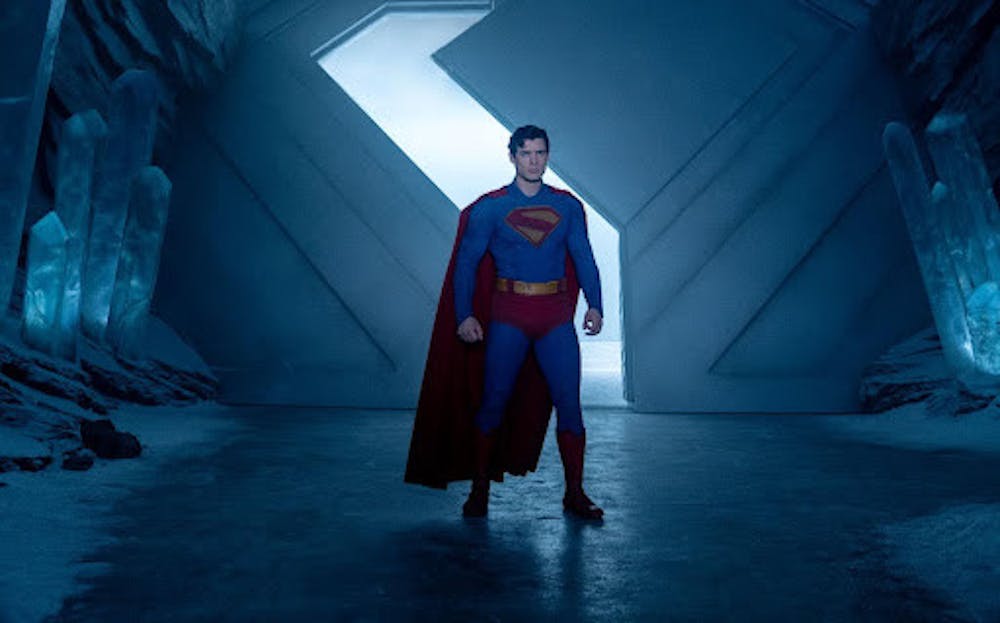By Jack Salaki
Correspondent
With the summer movie season now complete, it is a good time to look back at how films performed financially. Going into the summer, things looked strong. Hollywood had a diverse lineup of movies, from “F1” to “Superman.”
According to a Reuters article released in April, studios had hoped that this summer would turn around a declining box office. After many years of problems for movies, whether it be the COVID-19 pandemic wrecking box office returns or the writers’ strikes pushing back multiple films, this year was viewed as the return to normal.
It wasn’t just big studios that had expected high returns, but also movie theaters. Right from the start, 2025 was jam-packed with movies. Despite some concerns over too many films placed together, like “F1” and “Jurassic World” being five days apart, many cinema operators were glad to have a full schedule. After all, more movies should mean more money.
Variety also reported on how studios were bullish on the summer release schedule. The expected mark for this summer was $4 billion. That’s what many experts had bet on. It seemed to make sense since there were a good number of big-budget films being released. Not only that, but there were also strong franchises that brought large fanbases to the table. Large franchise names like Mission Impossible, Jurassic World and Superman had fanbases excited.
However, according to the article, between May 1 and Aug. 24, all the films released only amounted to a gross $3.53 billion. This number came way under the initial target that studios and movie theaters had hoped for.
So how did this happen? The issue wasn’t an issue of quality. In fact, many films that played across the world this summer were reviewed quite well. Instead, there was nothing that encouraged people to come out in droves to movie theaters. Sure, there were strong films, but none of them were cultural events.
Additionally, films that were expected to perform strongly, such as “Superman” and “Fantastic Four,” ultimately flopped at the box office.
While they were both well-reviewed films, with “Superman” earning an 83% critics and a 90% audience rating on Rotten Tomatoes, it only grossed $611 million according to Box Office Mojo. Meanwhile, “Fantastic Four” grossed a measly $506 million, despite strong reviews. In recent years, superhero movies have become a sort of litmus test for the movie industry, specifically the box office. Both major superhero movies would end up failing that test.
It wasn’t just the big superhero movies that failed this summer. If that were the case, then this summer’s box office would simply be a case of superhero fatigue. Rather, it seemed that culturally, people just weren’t showing up to the movies.
For example, “Elio,” a fresh Pixar film, only grossed $152 million. Many Pixar fans have hoped for fresh concepts instead of sequels. That’s exactly what “Elio” did. It’s not like it did poorly either. The film earned an 83% critics’ score on Rotten Tomatoes and a 90% audience score. Additionally, “Weapons,” a highly acclaimed horror film, just barely broke the $200 million mark.
It’s important to note that the string of box office failures doesn’t necessarily apply to every film. Without a doubt, there were successes. One of the most notable is Disney’s “Lilo and Stitch” live-action remake. The movie was the only film this summer to gross over $1 billion worldwide.
There are two main reasons why the box office numbers ended up where they did. The first reason is that the landscape for movies has changed. In the past, viewers didn’t have access to a wide catalog of films. With the advent of streaming services, anyone can stream anything.
Accessibility is key, and in a time when movie tickets are more expensive than ever, to many viewers, if a film isn’t truly special, then it just isn’t worth the price. Many studios have also damaged their own brands by releasing films relatively quickly after their theater runs. The Hollywood Reporter cited a study by Sony that revealed one in three Americans believes they can see a film within a month of its release. This contradicts the fact that many studios wait 40 or 45 days before making a film available on demand. Still, it shows a shift in how people interact with movies.
Another factor in this past summer’s box office decline was Hollywood’s overreliance on sequels. When you look at the movies released this past summer, many were sequels or part of cinematic universes – “Mission Impossible,” “Jurassic World,” “Smurfs,” “Superman,” and the “Fantastic Four,” just to name a few. It’s not that fanbases don’t exist for these properties, but that general movie-going audiences aren’t tapped into them unless they are groundbreaking.
If Hollywood learns anything from this past summer’s box office returns, it should be to spend less on movies. The fact is simple: streaming will likely only grow en masse and movie ticket prices will not stop increasing. They can’t change that. Yet, Hollywood can change the movies it makes. Instead of making sequels, there’s an opportunity to make creative films for a reduced budget.







